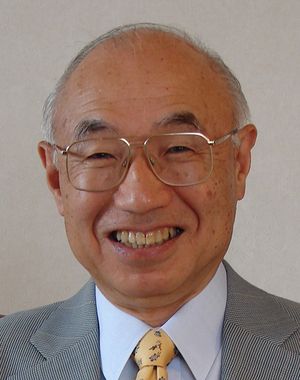Tsugio Makimoto
- Awards
- IEEE Robert N. Noyce Medal, Bellwether Award, Global IT Award
Biography
The driver of the semiconductor industry’s revolutionary shift from NMOS (N-channel metal oxide semiconductor) to CMOS (complementary metal oxide semiconductor), Tsugio Makimoto’s technical expertise and vision have led to the commercialization of high-speed memories and microprocessors that enable the digital consumer electronics we take for granted today. Makimoto helped develop and commercialize the world’s first high-speed 4K/16K CMOS static random-access memory (SRAM) based on twin-well structure technology. He then developed a high-speed CMOS microprocessor unit (MPU) that was as fast as its NMOS counterpart, but which operated at much less power. This was instrumental in the industry’s transition from NMOS to CMOS, with production of integrated circuits for logic, dynamic RAM, and flash memory switching to CMOS processes under his leadership. Most of today’s electronic devices are based on CMOS technology. Makimoto is also noted for developing field-programmable MPUs with embedded flash memory, which substantially shortened the time to market for new products. His leadership in promoting high-performance, low-power reduced instruction set computer (RISC)-based MPUs was instrumental in creating the digital consumer market segment to provide the digital cameras, hand-help PCs, and other powerful portable devices that proliferate our society today and enable our mobile lifestyle. Makimoto has also provided the semiconductor industry with a valuable tool for predicting trends and developing strategies. He recognized that there is a cyclical nature to the semiconductor industry where, over time, there would likely be an oscillation between customized and standardized products. He theorized that over a 10-year period, key forces such as differentiation, value-add, operational efficiency, cost effectiveness, and time to market would drive this oscillation. This became known as “Makimoto’s Wave,” and it contributed to the rise of the field-programmable gate arrays. Makimoto also helped establish the World Semiconductor Council to promote international cooperation among semiconductor associations from around globe.
An IEEE Life Fellow and recipient of 2004 Bellwether Award and 2013 Global IT Award, Makimoto is the president of Technovision, Tokyo, Japan.
